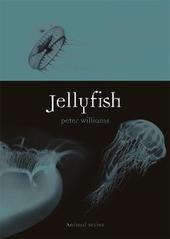
|
Jellyfish
Paperback / softback
Main Details
| Title |
Jellyfish
|
| Authors and Contributors |
By (author) Peter Williams
|
| Series | Animal |
|---|
| Physical Properties |
| Format:Paperback / softback | | Pages:192 | | Dimensions(mm): Height 190,Width 135 |
|
| ISBN/Barcode |
9781789142150
|
| Classifications | Dewey:593.53 |
|---|
| Audience | |
|---|
| Illustrations |
100 colour illustrations
|
|
Publishing Details |
| Publisher |
Reaktion Books
|
| Imprint |
Reaktion Books
|
| Publication Date |
13 April 2020 |
| Publication Country |
United Kingdom
|
Description
Jellyfish are, like the mythical Medusa, both beautiful and potentially dangerous. Found from pole to tropic, these mesmeric creatures form an important part of the sea's plankton and vary in size from the gigantic to the minute. Perceived as alien creatures and seen as best avoided, jellyfish nevertheless have the power to fascinate: with the sheer beauty of their translucent bells and long, trailing tentacles; with a mouth that doubles as an anus; and without a head or brain. Drawing upon myth and historical sources as well as modern scientific advances, this book examines our ambiguous relationship with these ancient and yet ill-understood animals, describing their surprisingly complex anatomy, weaponry and habits, and their vital contribution to the ocean's ecosystem.
Author Biography
Peter Williams, who lives in Oxford, has a life-long interest in natural history and the contribution animals make to our culture. He is author of Snail (2009) in the Animal series.
Reviews"Engaging and handsomely illustrated. . . . Enduring they may be; endearing they are not. Toy jellyfish, after all, are few and far between. 'Octopuses, yes,' Williams ruefully acknowledges, but 'very, very few jellyfish.' They are too toxic and they look too weird. But, he argues persuasively, if they are ineligible for affection, they at least deserve humanity's respect." * Economist * "Combing through history, art, and science, Williams tells stories proving that these graceful watery creatures deserve our appreciation even while they elude our understanding." -- Mary P. Winsor, IHPST, University of Toronto
|